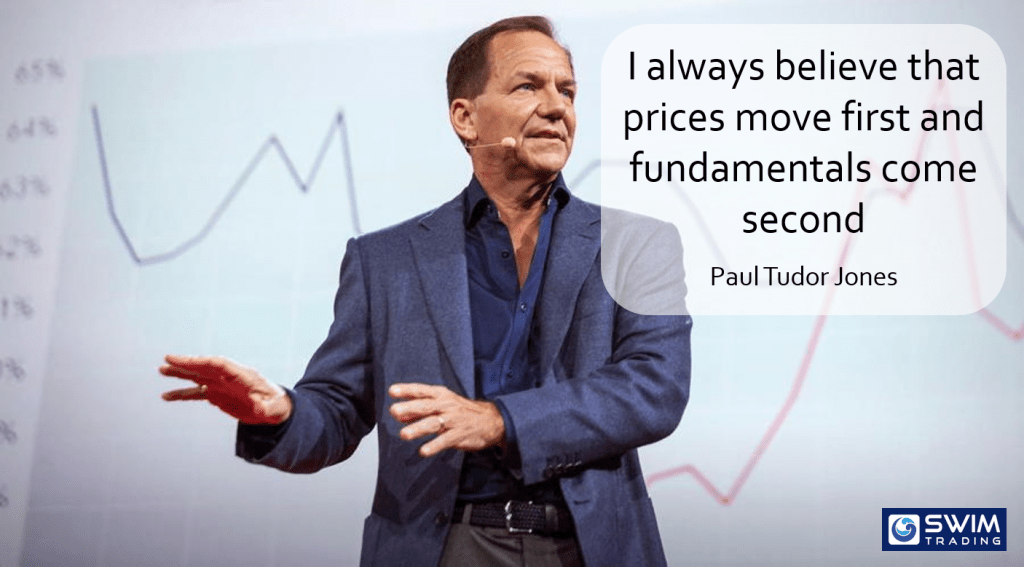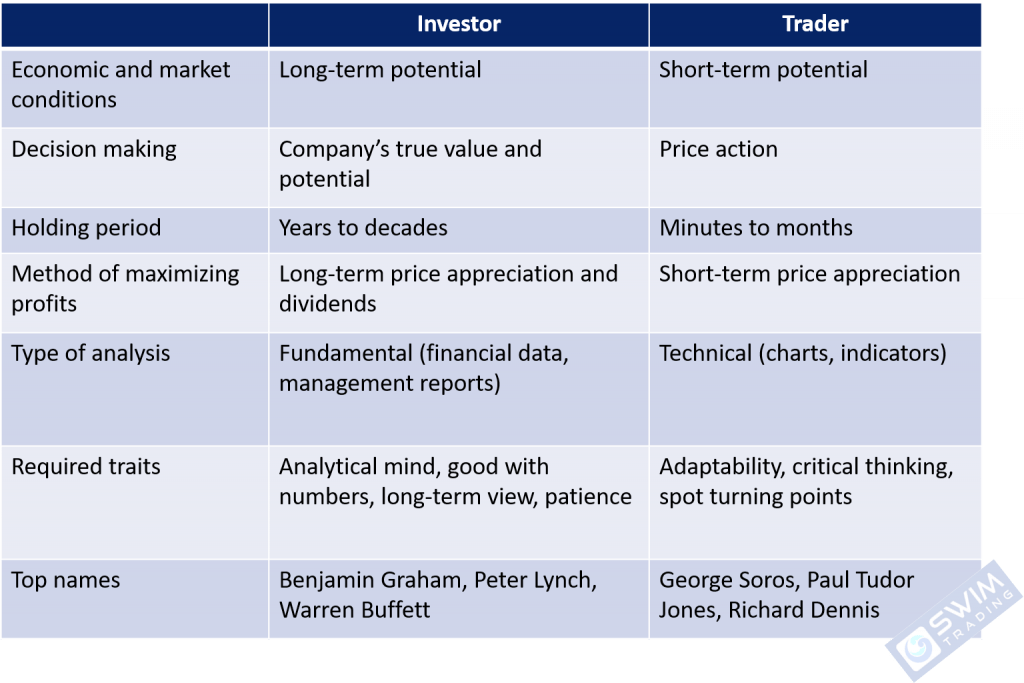Trading is glamorous! You see photos of traders in fancy watches, cars, and even taking exotic vacations. Except, there’s a lot of work that’s behind the scenes which you don’t get to see.
Before I get into what it takes to trade for a living, please allow me to share the differences between an investor and trader. This is crucial so that you don’t get confused, or worse still, apply the wrong mindset and strategies.
Investing vs Trading
These are the 2 most misunderstood terms in the world of finance. You may think of yourself as a trader, but act like an investor. Your mindset and strategies are mixed.
The 2 main differences between investing and trading are:
#1 Perspective
#2 Holding period
#1 Perspective
Investors see themselves as owners of the companies they invest in. They pick companies that are financially sound and have the potential to grow. You’d often hear them talk about a company being undervalued, their economic moats, new business developments, and more.
When invested in a company, they stay vested with no intention to sell unless there’s a major shift in the economy, threatening the company’s business. One of the most famous and successful investors is Warren Buffett.

You may have heard of his legendary investments in Coca-Cola and the sale of his airline stocks due to the economic shifts caused by the COVID-19 pandemic.
Investors value dividends as that’s a sign of health, adding to their wealth at the same time.
A trader, on the other hand, pays little attention to the companies he is trading. He doesn’t spend much time understanding the economy as well. And, he doesn’t care about receiving dividends.
The lingo traders use include “trend”, “breakout”, “support and resistance”, “indicators”, “profit target”, and “stop loss”.
You’ve guessed it. They look at charts and utilize technical analysis.
Traders look out for news and technical chart patterns to give them an edge.
Instead of just buying shares, traders engage in short-selling where they make money when prices decline. This means that traders are more versatile in the different market scenarios as they can make money in bull and bear markets.
#2 Holding Period

The fundamentals of an economy changes very slowly. This means that the holding period for investors is years or even decades.
As the world changes faster with technology, investors may start to shorten their holding period.
Traders hold their positions for a much shorter time. It may range from a couple of minutes to a couple of months. They close their positions when their target price or stop loss levels have been hit or when prices start ranging.
Such short term trades may seem daunting and risky. However, risk is minimized through an understanding of the financial markets, self-awareness, and strong financial management. These are necessary because the instruments they use can be more sophisticated. A trader can be likened to a professional poker player.
Traders can be found in many hedge funds and other financial institutions. The world’s top traders are George Soros, Richard Dennis, and Paul Tudor Jones.
The other differences between an investor and trader are shown in the table below:

Some say that technical analysis is a short-cut to all the tedious work of analyzing companies. This is because of this core belief of technical analysis – the markets are forward pricing. This explains the rise in share prices as optimism grows, while the fall in share prices as pessimism sets in.
In the next part of Trading For A Living, I’ll bust a myth about trading. You’ll also learn about how much capital you need before you can trade full-time.
Here’s What You Can Do To Improve Your Trading Right Now:
#1 Register for our market outlook webinars by clicking here
#2 Join us in our Facebook Group as we can discuss the various ways of applying this by clicking here
#3 Never miss another market update; get it delivered to you via Telegram by clicking here
#4 Grab a front row seat and discover how you can expand your trading arsenal in our FREE courses (for a limited time only) by clicking here
See you around!

